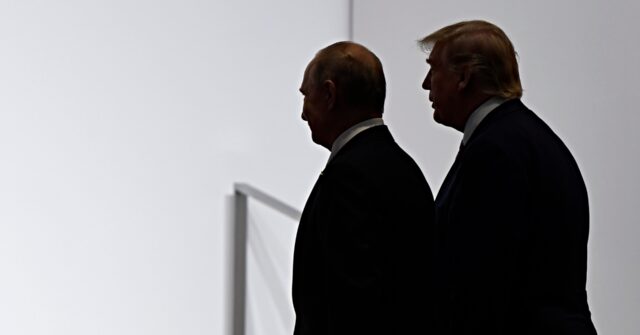In a recent press briefing, Dmitry Peskov, the top spokesperson for Russian President Vladimir Putin, affirmed that Putin is “ready for talks” to resolve the ongoing conflict in Ukraine, ideally under the leadership of President-elect Donald Trump. This statement came in response to a Reuters report citing anonymous sources indicating that Putin might consider negotiations to end the war, provided Russia can retain control over significant portions of the territory it has seized. Peskov’s remarks suggest an openness from the Kremlin regarding discussions, emphasizing a possible agreement to pause hostilities along current front lines, which could play a crucial role in negotiating a resolution.
The context of the Ukraine conflict dates back to 2014 when Russia first invaded and annexed Crimea. After a relatively quieter period during Trump’s presidency, tensions escalated again in February 2022 when Putin launched a renewed invasion, following the lifting of sanctions related to the Nord Stream 2 pipeline that aimed to increase Russian fossil fuel sales to Europe. That September, Putin further escalated matters by annexing territories in the Donbas region (Luhansk and Donetsk) and other regions (Kherson and Zaporizhzhia). The Ukrainian leadership has remained steadfast in refusing any negotiation that would allow Russia to maintain control over these annexed areas, whereas the Biden administration has prioritized military assistance to Ukraine over diplomatic initiatives.
As the war continues, concerns grow over the potential for escalation involving the United States and its allies. Recently, reports surfaced that President Biden approved the use of long-range American missiles by Ukraine, a move that could heighten tensions with Russia. While the White House has not confirmed these reports, both nations acknowledged that such missiles were employed in attacks on undisputed Russian territory, which raises alarms about further military escalation. The situation is made more complex with Russia reportedly enlisting North Korean troops to support its military efforts, symbolizing a deepening international dimension to the conflict.
Peskov emphasized Putin’s readiness for dialogue, particularly in light of a change in U.S. leadership. He noted that Putin has historically expressed the willingness to engage in discussions. However, the nuances of the potential negotiations remain contentious. According to the sources referenced by Reuters, there is speculation that Putin may contend for a significant portion of the territories captured during the conflict, while also leaving room for discussions about withdrawal from less critical areas. This situation illustrates the complexity of crafting an acceptable deal that would allow Putin to claim a ‘victory’ domestically, despite growing public dissent against the war.
Despite Peskov’s apparent willingness to engage in dialogue with Trump, the Kremlin has maintained a skeptical tone regarding bilateral relations under the current geopolitical reality, which they categorize as highly antagonistic. Peskov described the U.S. as an unfriendly nation involved, directly and indirectly, in a conflict against Russia. Moreover, he indicated that relations could not be worsened as they currently stand at a nadir, thus framing any negotiations as stemming from a place of existing discord rather than cooperation. While Peskov had initially downplayed any prospects for congratulating Trump after his victory, Putin eventually did commend him, indicating a faint possibility for improved dialogue if circumstances allow.
In summary, the recent statements by Peskov reflect a complex interplay of diplomatic gestures, military escalations, and national interests. The potential for negotiations with an incoming U.S. administration under Trump could signify a new chapter in Russia’s approach to the Ukrainian conflict. However, the path ahead remains fraught with challenges, as both nations grapple with entrenched positions, domestic pressures, and the specter of broader military engagement. As the geopolitical landscape evolves, the world watches closely for indications of whether dialogue might prevail or if the conflict will intensify further.

